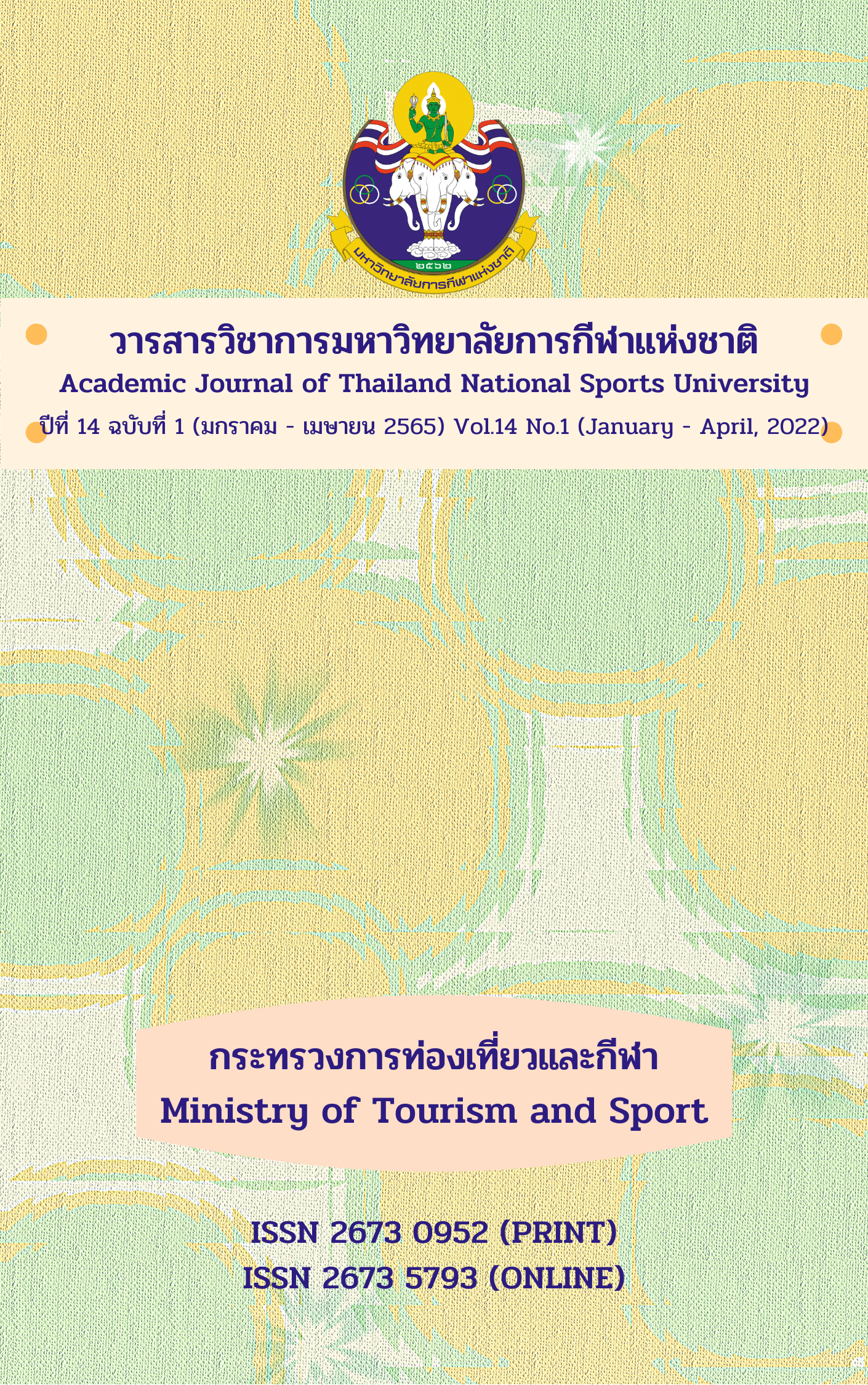THE STUDY ON SERIOUS LEISURE BEHAVIORS OF LECTURERS IN UNIVERSITY
Main Article Content
Abstract
Serious Leisure is an activity or an event that people are willing to participate in almost everyday and becomes a part of their daily life. The leisure activities help a number of citizens to improve their knowledge, skills and gain a lot of experiences which can be increased opportunities and quality of life. The objectives of this research were to 1) study the serious leisure behaviors of people who participate in one of leisure activities, and 2) study the factors affecting spending serious leisure time. The methodology of this study was qualitative research, and the sample were the lecturers who worked at the university and spent their free time regularly. 30 samples were selected Ramkhamhaeng University lecturers by purposive sampling, and Maximum Variation Sampling method. The data were collected by critical incident that had Index of Consistency (IOC) = 1.0 with a description about their serious leisure behaviors and factors for making decision on spending serious leisure time. The results showed that most of samples participated in serious leisure outside their residences and the causal factors for making decision on spending serious leisure time were classified into two groups which were 1) awareness and 2) perception. The serious leisure was a part of growth and happiness of an individual that leads to the leisure behaviors which increase their challenge continually, in order to enhance their experiences and meet sustainable needs until it becomes a part of their behavior in daily life.
Article Details

This work is licensed under a Creative Commons Attribution-NonCommercial-NoDerivatives 4.0 International License.
The published article is a copyright of the Academic Journal of Thailand National Sports University. The passage appeared in each article in this academic journal is a perspective of each author which is not related to the journal. Each author is required to be responsible for all components of his/her own article. If there are any mistakes, each author must be responsible for those mistakes on his/her own.
References
Blackshow, Tony. (2010). Leisure. New York: Routledge.
Chomnapas Wangein. (2018). Mental health of working people. Retrieved from https://www.thaihealth.or.th/Content/43749%%E2%80%9D.html
Csikzenmihalyi, Mihaly. (1997). Finding Flow the Psychology of Engagement with Everyday Life. NY: Basic Books.
Dattilo, John. (2008). Leisure Education Program Planning a Systematic Approach. PA: Venture Publishing, Inc.
Department of Mental Health. (2018). Department of Mental Health revealed 45% of working - age people were stolen their happiness. Retrieved from https://www.dmh.go.th/news-dmh/view.asp?id=28253
Department of Physical Education. (2017). The 3rd National Recreation Development Plan (2017 – 2021). Retrieved from https://www.mots.go.th/ewt_dl_link.php?nid=10823
Kanamori, S., Takamiya, T., Inoue, S., Kai, Y., Kawachi, I., & Kondo, K. (2016). Exercising alone versus with others and associations with subjective health status in older Japanese: The JAGES Cohort Study. Scientific Reports, 6(1). doi:10.1038/srep39151.
Kelly, John R., & Freysinger, Valeria J. (2002). 21st Century Leisure Current Issues. MA: Allyn & Bacon.
Kim, J., Heo, J., Lee, I. H., & Kim, J. (2014). Predicting personal growth and happiness by using serious leisure model. Social Indicators Research, 122(1), 147 - 157. doi:10.1007/s11205-014-0680-0.
Mannell, Roger C., & Kleiber, Douglas A. (1997). A Social Psychology of Leisure. PA: Venture Publishing, Inc.
Rojek, Chris. (2005). Leisure Theory Principle and Practice. NY: Spinger.
Russell, Ruth V. (2005). Pastimes The Context of Contemporary Leisure. IL: Sagamore Publishing, Inc.
Stebbins, R. A. (2017). Serious leisure: A perspective for our time. New York: Routledge.
Weng, P., & Chiang, Y. (2014). Psychological restoration through indoor and outdoor leisure activities. Journal of Leisure Research, 46(2), 203 - 217. doi:10.1080/00222216. 2014.11950320.


